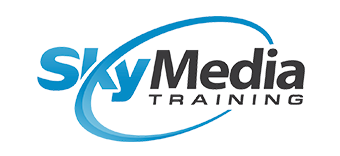Drone Flying in Australia: What You Need to Know to Fly Legally
Drone flying in Australia has rapidly gained popularity, offering exciting opportunities for both recreational users and commercial operators. However, the rise in drone usage has also brought about the need for strict regulations to ensure safety and compliance. Whether you’re capturing stunning aerial shots for personal use or utilising drones for professional projects, understanding the rules governing drone flying in Australia is crucial. This guide provides a comprehensive overview of the regulations and highlights how SkyMedia Training’s RePL course can help you navigate the legal landscape for commercial drone operations.
Understanding CASA’s Role in Drone Regulation
The Civil Aviation Safety Authority (CASA) is the governing body responsible for regulating drone activities in Australia. Their primary objective is to ensure that drones are operated safely without posing risks to people, property, or manned aircraft. CASA’s regulations are designed to balance the growing use of drones with the need for airspace safety.
General Rules for Drone Flying in Australia
Whether you’re a recreational flyer or a commercial operator, certain rules apply to all drone activities in Australia.
1. Visual Line of Sight (VLOS)
All drone operations must be conducted within the operator’s visual line of sight. This means you must be able to see your drone with your own eyes at all times, without the aid of binoculars or other visual enhancements.
2. Maximum Altitude
Drones are restricted to a maximum altitude of 120 metres (400 feet) above ground level. Flying higher requires special permission from CASA to avoid conflicts with manned aircraft.
3. Distance from People
Operators must maintain a minimum distance of 30 metres from other people who are not involved in the drone operation. Flying over crowds, such as at beaches, parks, or sporting events, is strictly prohibited.
4. No-Fly Zones
Certain areas are designated as no-fly zones, including:
- Within 5.5 km of a controlled airport
- Over emergency situations, such as bushfires or police operations
- In prohibited airspace, such as military zones
CASA provides a drone safety map to help operators identify restricted areas.
5. Daylight Operations
Unless specifically approved, drone operations are restricted to daylight hours. Flying at night requires special permissions and additional safety measures.
Drone Flying for Recreational Users
Recreational drone users, while subject to general rules, enjoy fewer restrictions than commercial operators. However, they must still adhere to the following:
Weight Limits
Recreational drones must weigh less than 2 kg. If your drone exceeds this limit, you may need to register it with CASA and obtain additional permissions.
Drone Registration
Drones used recreationally that weigh between 250 grams and 2 kg must be registered with CASA. This process includes providing personal details and basic information about your drone.
Recreational Pilot Accreditation
Operators of drones weighing 250 grams or more must complete a free online accreditation course provided by CASA. This course covers basic safety information and ensures you understand your responsibilities as a drone pilot.
Drone Flying for Commercial Operators
Commercial drone operations come with additional responsibilities and requirements. These include obtaining specific certifications and adhering to stricter compliance measures.
Remote Pilot Licence (RePL)
To operate drones commercially in Australia, you must obtain a Remote Pilot Licence (RePL). This certification allows you to perform a range of commercial activities, including aerial photography, surveying, and agricultural monitoring.
How to Obtain an RePL:
- Meet the Eligibility Requirements: You must be at least 16 years old and possess an Aviation Reference Number (ARN).
- Complete a CASA-Approved RePL Course: SkyMedia Training offers a comprehensive RePL course that includes both theoretical and practical components.
- Pass the Final Assessments: Successfully complete a written exam and a practical flight test to demonstrate your competency.
- Submit Your Application: Once you’ve passed your assessments, your training provider will submit your RePL application to CASA.
Operator’s Certificate (OC)
For businesses offering drone services, an Operator’s Certificate (OC) is required. This certification ensures that your organisation meets CASA’s safety and operational standards.
Commercial Drone Registration
All drones used for commercial purposes must be registered with CASA, regardless of their weight. This registration must be renewed annually and includes a small fee.
Benefits of Commercial Drone Certification
Investing in commercial drone certification offers several advantages:
- Legal Compliance: Ensure your operations meet CASA’s regulatory standards, avoiding fines and legal complications.
- Access to Advanced Projects: Certified operators can work on projects that require flying in controlled airspace or carrying out complex operations.
- Enhanced Credibility: Certification demonstrates professionalism and expertise, making you more attractive to clients and employers.
SkyMedia Training’s RePL Course
SkyMedia Training provides a CASA-approved RePL course designed to equip operators with the skills and knowledge needed for safe and compliant drone operations.
Course Highlights
- Theoretical Training: Covers essential topics such as air law, risk management, meteorology, and flight performance.
- Practical Flight Sessions: Gain hands-on experience under the guidance of experienced instructors.
- Data Interpretation: Learn how to analyse flight data for applications such as mapping, surveying, and agricultural monitoring.
Compliance Tips for Drone Operators
Maintaining compliance with CASA regulations is an ongoing responsibility. Here are some tips to ensure you remain compliant:
1. Stay Informed
Regulations can change as technology evolves. Regularly check CASA’s website for updates or subscribe to their newsletter for the latest information.
2. Log Your Flights
Maintain a detailed logbook of your drone operations, including flight dates, locations, and purposes. This is particularly important for commercial operators.
3. Renew Certifications and Registrations
Ensure your RePL, OC, and drone registrations are kept up to date. Expired certifications can result in penalties and operational disruptions.
4. Invest in Insurance
While not legally required, drone insurance is highly recommended. It provides coverage for potential damages or liabilities, offering peace of mind during operations.
